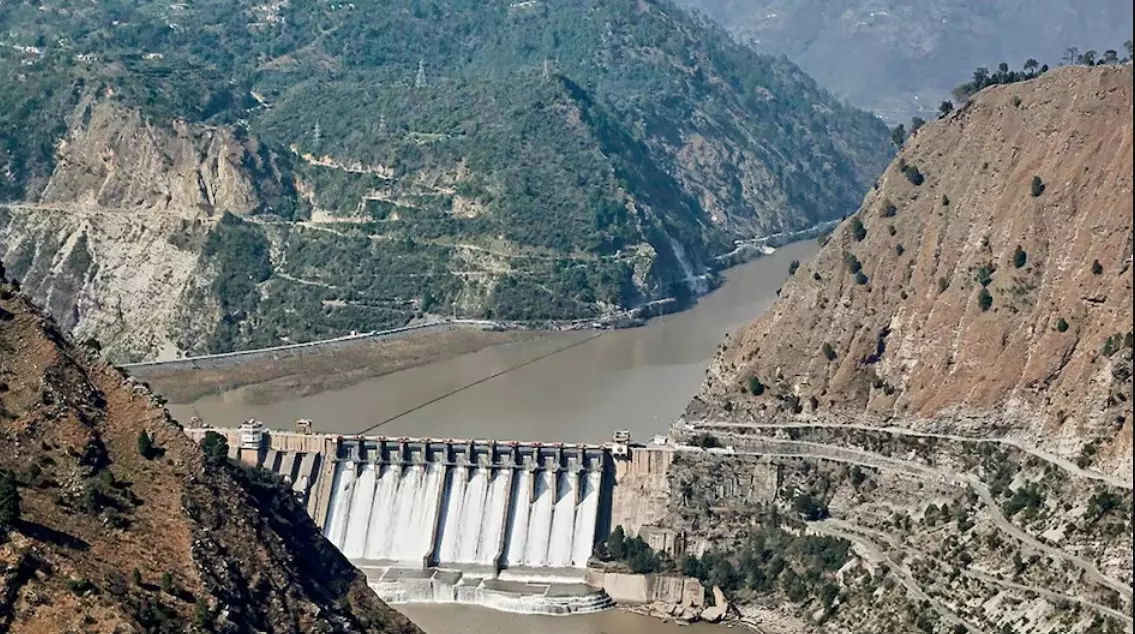
New Delhi, April 24 -- The decision by India to suspend the Indus Waters Treaty marks a dramatic and consequential shift in one of the subcontinent's longest-standing, most resilient diplomatic frameworks. For over six decades, the treaty has weathered wars, hostilities, and fierce political rhetoric between India and Pakistan. But in the aftermath of the Pahalgam terror attack - which claimed 26 lives and has been linked to Pakistan-based militant groups - India's response is a calibrated message: strategic patience has its limits. Signed in 1960 under the World Bank's aegis, the Indus Waters Treaty (IWT) divided the waters of six rivers between the two nations. India was granted control over the eastern rivers - Ravi, Beas, and Sutlej - while Pakistan received the lion's share of the Indus, Jhelum, and Chenab. For decades, the IWT was held up as a shining example of cooperation in a region otherwise fraught with conflict. It was arguably the only bilateral arrangement that continued unimpeded even during full-blown wars. The Indian government's latest move to suspend the treaty is not without precedent. After the 2016 Uri and 2019 Pulwama attacks, there were similar calls to revisit the treaty, with Prime Minister Narendra Modi famously stating, "blood and water cannot flow together." Yet, on both occasions, India refrained from formally suspending the pact. This time, however, the Centre appears to have decided that symbolism must give way to substance.
For Pakistan, the implications are stark and deeply unsettling. Already facing an acute water crisis driven by population growth, climate stress, and decades of mismanagement, Islamabad is staring at a potential catastrophe. Over 90% of Pakistan's agriculture relies on irrigation, and the Indus River system is its lifeline. The threat of restricted water flow - even if temporarily - is enough to rattle its economy and spark political instability. The immediate consequence of the suspension will not be a sudden drying up of river flow - after all, international treaties have legal safeguards, and unilateral revocation is neither easy nor without consequences. But it does alter the diplomatic environment. India has effectively said that the treaty is no longer sacrosanct, especially if terrorism continues to flow from Pakistani soil. The suspension serves as both a pressure tactic and a political signal - that India will now leverage all tools, including hydro-diplomacy, to hold Pakistan accountable. But the move also poses significant challenges for India itself. The first is the risk of international scrutiny. While India has maintained that the suspension is justified given the grave provocation, global institutions like the World Bank and influential players such as the United States, China, and the European Union may urge restraint. Climate diplomacy is already a sensitive arena, and water as a weapon - even if symbolic - may be frowned upon in global forums. Second, India must prepare for retaliatory escalation - diplomatically, politically, or even militarily. Pakistan could use this as justification for hardening its position on Kashmir, seeking to internationalise the water issue, or ramping up diplomatic outreach to portray India as violating a humanitarian obligation. The bilateral trust deficit, already deep, may now become unbridgeable in the foreseeable future.
Moreover, India must carefully manage the message internally and to its neighbours. Domestically, the move may boost nationalist sentiment and reinforce the image of a resolute government. But the Centre must also ensure that this symbolic move is backed by policy clarity. Can India effectively utilise its share of the Indus waters? Does it have the infrastructure in place - dams, canals, and diversion mechanisms - to make use of what it is now entitled to hold back? Without tangible steps, the suspension risks being viewed as more political theatre than strategic action. For South Asia as a whole, the suspension of the treaty is a wake-up call. Water, like borders, is a source of sovereignty - but also of vulnerability. The IWT was among the few instances of institutionalised cooperation in a region where mistrust is the norm. It's unravelling - even if temporarily - adds to the climate of hostility, raising fears that South Asia may be inching toward a water-conflict future. Still, India's action underscores an important truth: peace cannot be a one-sided bargain. If Islamabad continues to shelter and support terror outfits that target Indian civilians and soldiers, it cannot expect New Delhi to uphold the niceties of international cooperation. Terrorism and treaties cannot co-exist in perpetuity. In essence, the suspension of the Indus Waters Treaty is not just about water - it is about accountability. It is a signal that the era of diplomatic indulgence is giving way to hard-nosed realism. But this realism must be tempered with responsibility.
Published by HT Digital Content Services with permission from Millennium Post.
